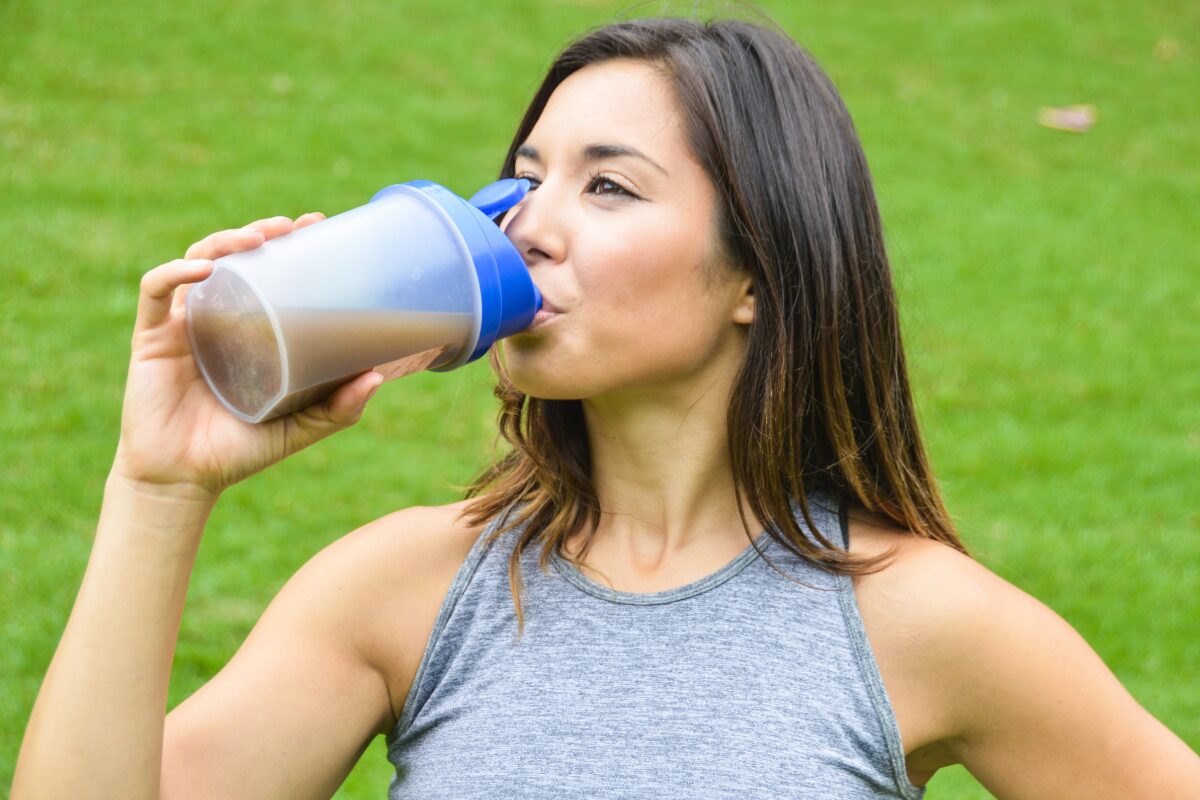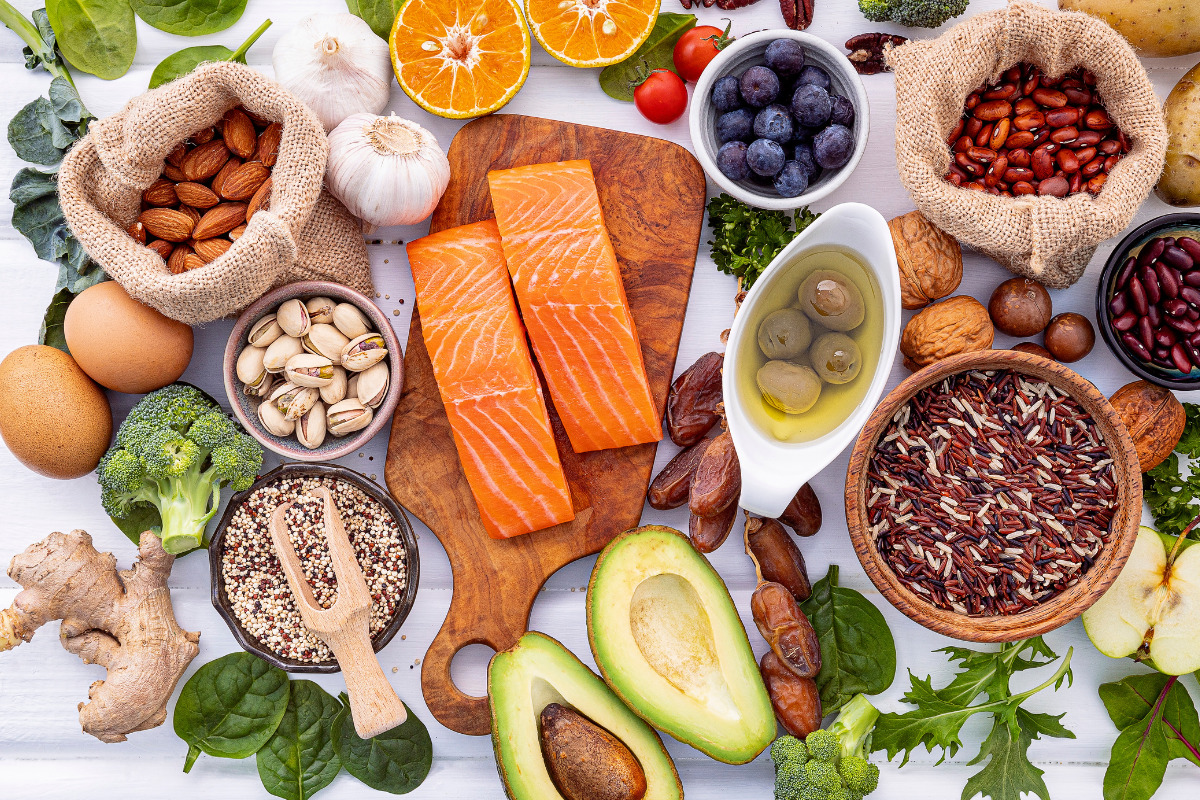Getting Started on a Plant-Based Diet in Midlife
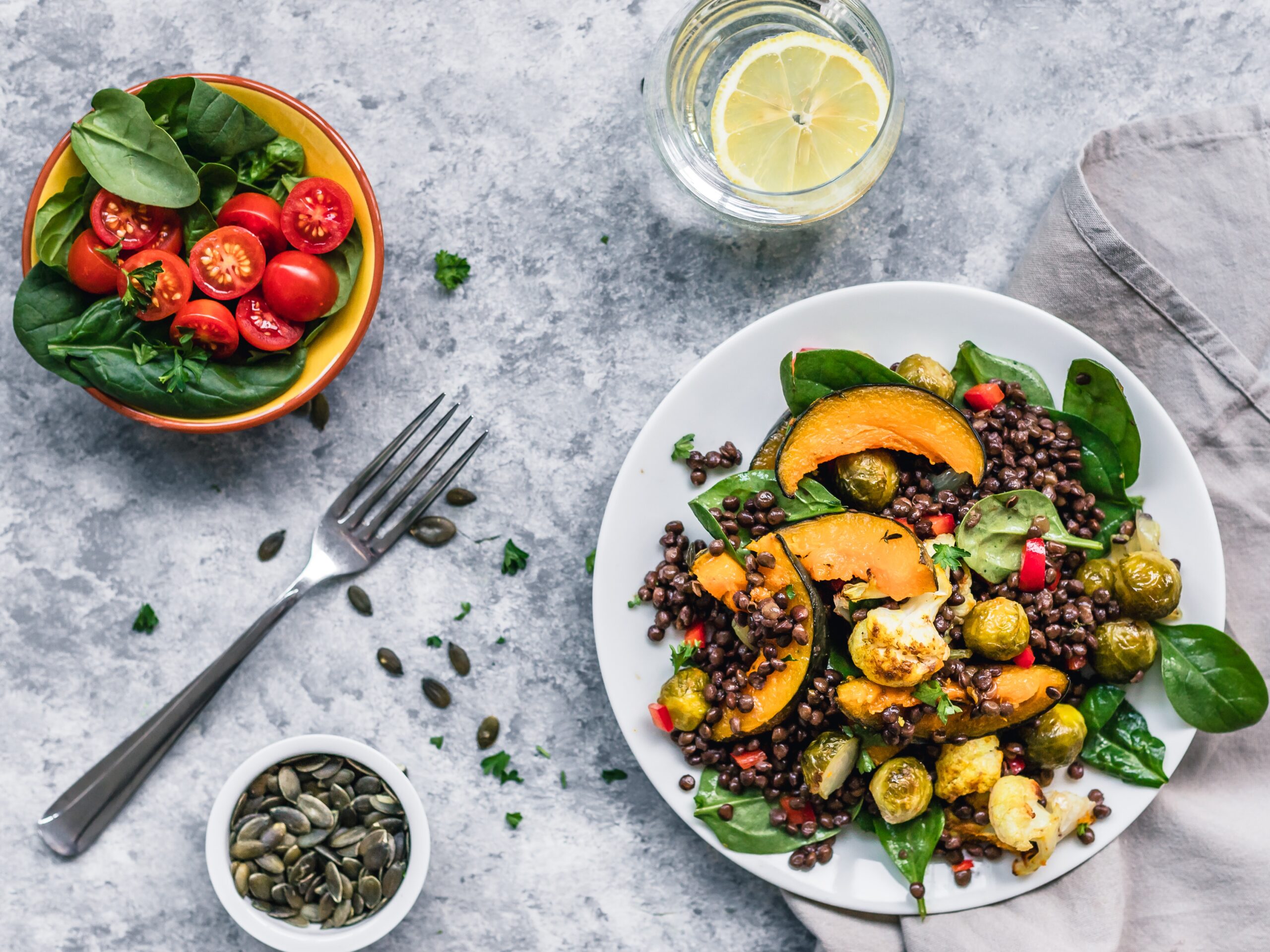
Thanks to the rise in popular Netflix documentaries and social media campaigns, the term “plant-based diet” is suddenly everywhere. Many women are drawn to this pattern of eating in midlife and menopause, whether it is for health, ethical, or environmental reasons. Research has demonstrated that those who prioritize plants tend to live longer with less cardiovascular disease risk, especially in midlife. This is an important finding since cardiovascular disease is the leading cause of death among women. Also, diets higher in plant fiber are also associated with decreases in menopausal symptoms.
But what exactly is a plant-based diet? And how can you follow it correctly to support your health during menopause and beyond?
What Is a Plant-Based Diet?
A common misconception is that a person who follows a plant-based diet is also vegan, but this isn’t always true. A vegan does not eat or use any animal products. A person who follows a plant-based diet will emphasize plants (grains, vegetables, fruits, nuts, and seeds), but may choose to incorporate small amounts of meat in their diet. For the purposes of this article, the term “meat” refers to all animal protein, including red meat, poultry and eggs, and fish.
There are no set rules on what defines a plant-based diet, but there are a few key considerations to make sure you are following it in a way that optimizes your health during midlife and menopause.
Do’s and Don’Ts of Starting a Plant-Based Diet in Midlife
Do Eat Real Food
With food trends come food manufacturers trying to make money off the popularity. The goal of a plant-based diet is to lessen the amount of processed food in your diet, so eating vegan “burgers” with ingredient lists as long as a book contradicts this premise. The same applies to fake vegan cheese with additives and fillers. While some companies make healthy veggie burgers or cashew cheese, be smart about the label. Look for short ingredient lists that don’t contain things you can’t pronounce. Food writer Michael Pollan offers a good rule of thumb: avoid buying any food product with more than four ingredients on the label. An alternative to packaged foods is learning to make your versions, which are usually tastier and healthier. Veggie burgers are easy to make, for example. Black beans, nuts, seeds, and nutritional yeast is one popular variation. To find your perfect veggie burger recipe, check out this roundup of the eleven best vegan and vegetarian recipes.
Don’t Forget the Protein
It is certainly possible to get enough protein while decreasing your animal product intake, but it takes a little more mindfulness. Make sure each meal includes an animal or plant-based protein – lentils, beans, nuts, seeds, or even protein powders such as hemp and pea. Eating protein optimizes blood sugar management, essential for hormone regulation during menopause.
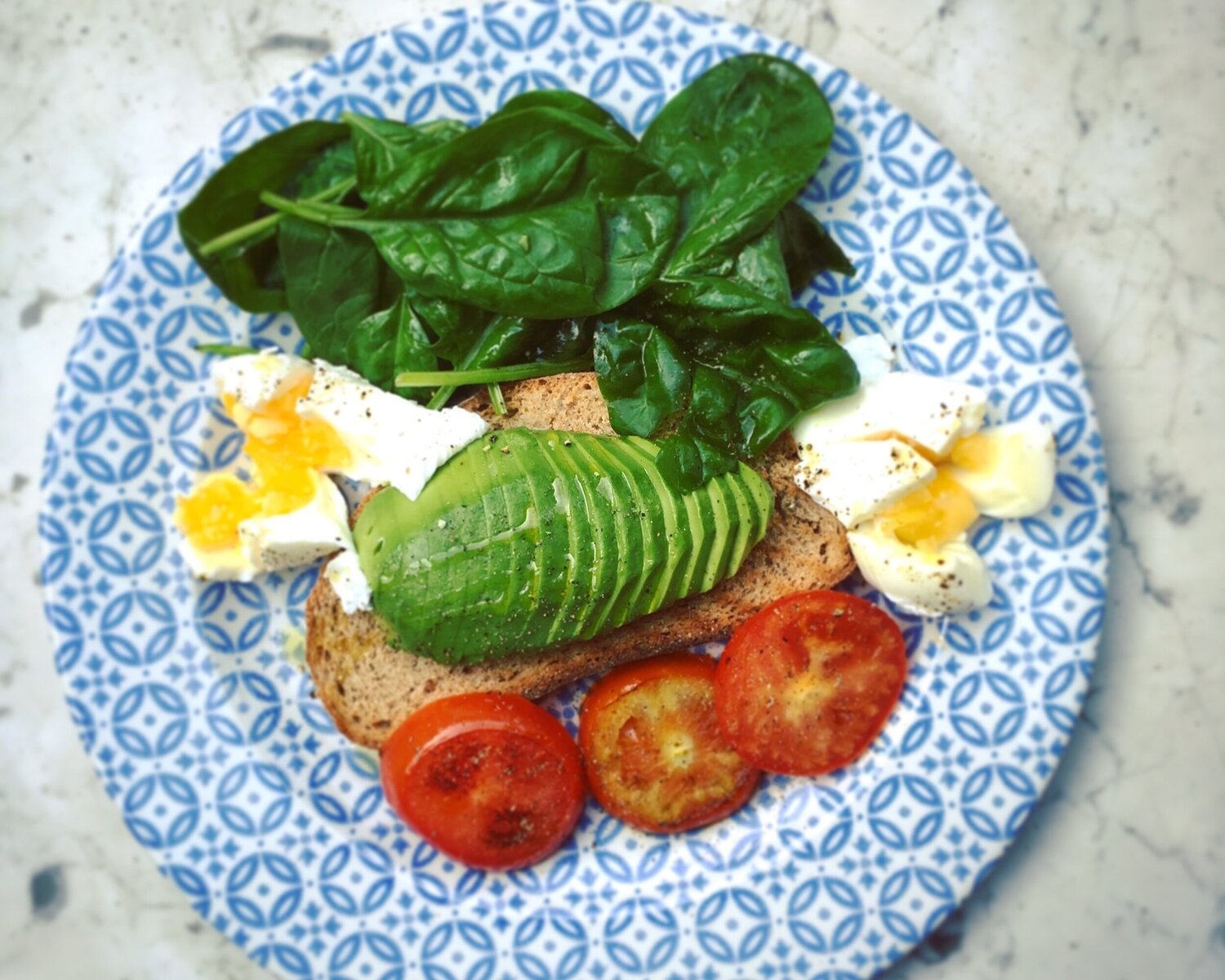
Do Pay Attention to Nutrients of Concern
If you plan to cut out all animal products, make sure you are prepared to supplement your diet. Some nutrients can only be obtained from animal products or are less bioavailable in the vegetarian form. Vitamin B12, a nutrient essential for your nervous system, red blood cells, brain health, and more, can only be obtained from animal products or fortified foods. Additionally, as we age, we have a decreased ability to absorb B12 from our food. Other nutrients to monitor are vitamin D, zinc, calcium, iron, and omega-3. In theory, you can get these nutrients from a plant-based diet, but if you are skipping meat altogether, they are often needed in supplemental forms from a multi-vitamin to get optimal amounts.
Don’t Use Empty Carbohydrates to Fill Up
Chips, pasta, treats, and rice are simple carbohydrates that will spike your blood sugar and leave you feeling hungry a few hours later. If you are used to eating more meat, poultry, or fish at meals to keep you satiated, you may overeat the wrong kind of foods because you don’t know what to eat. A plant-based diet should focus on fiber-rich fruits and veggies, whole grains as tolerated, healthy plant fats, and protein-filled legumes, nuts, and seeds. Find a fun new vegetarian cookbook to give you new ideas for meals and snacks. Super Foods by Julie Montagu, The Flexi Foodie, is a great choice for plant-based recipes using the healthiest ingredients. As an added bonus, every recipe is meat-free, dairy-free, and sugar-free.
Do Eat Anti-inflammatory Plant Fats
Nuts, seeds, avocados, flax and chia seeds, and olives are all filled with excellent, anti-inflammatory fats. Plant-based fats and oils can help reduce inflammation, improve your cholesterol, decrease your risk of cardiovascular disease, and support your brain health. While portion control is still important to avoid overeating, don’t be afraid to include these healthy oils in your daily diet.
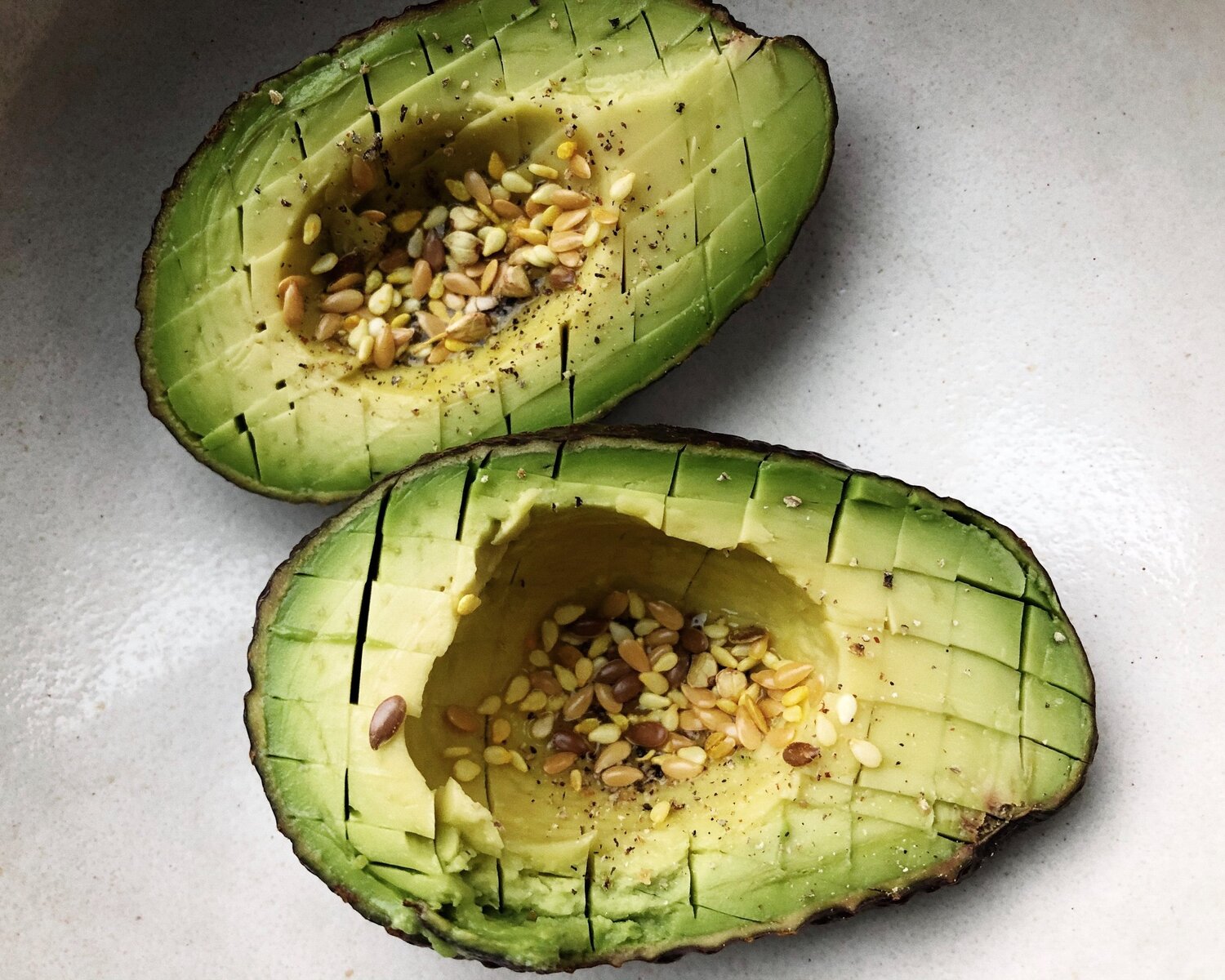
Don’t Forget to Meal Plan
Meal planning is critical for long-term healthy eating habits. Not only does meal planning lead to healthful choices, but it also helps you to save time and money. You won’t make impulse purchases at the grocery store or call for last-minute take-out when you have a detailed plan to follow. Meal planning helps ensure your meals are balanced, you have healthy choices, and you don’t reach for less-than-optimal options.
Do Choose Animal Protein Wisely
If you are continuing to eat meat, make it count. Choose fatty fish like wild salmon two days a week to grab those anti-inflammatory omega-three fatty acids. If you live somewhere with access to a farmer’s market or local butcher, seek out grass-fed, sustainably raised meat or free-range poultry and eggs. While these types of foods may seem more expensive at first, the plant-based diet views meat as a side dish rather than the focus of your meal as in the standard American diet. You need smaller amounts of animal proteins, so you can spend money on quality products.
Don’t Avoid Soy
Soy is a very controversial and confusing topic for women in menopause. Despite what you may have read or heard in the past, midlife women do not need to avoid soy. Soy is a weak phytoestrogen and can support symptoms of menopause that are related to the drop in estrogen (such as hot flashes). Soy is also associated with a reduction in LDL cholesterol (the “bad” cholesterol), and even shows a protective effect against tumor reoccurrence in women who have had breast cancer. Soy protein in minimally-processed forms such as tofu, edamame, and tempeh are excellent choices and can also help you meet your protein requirements.
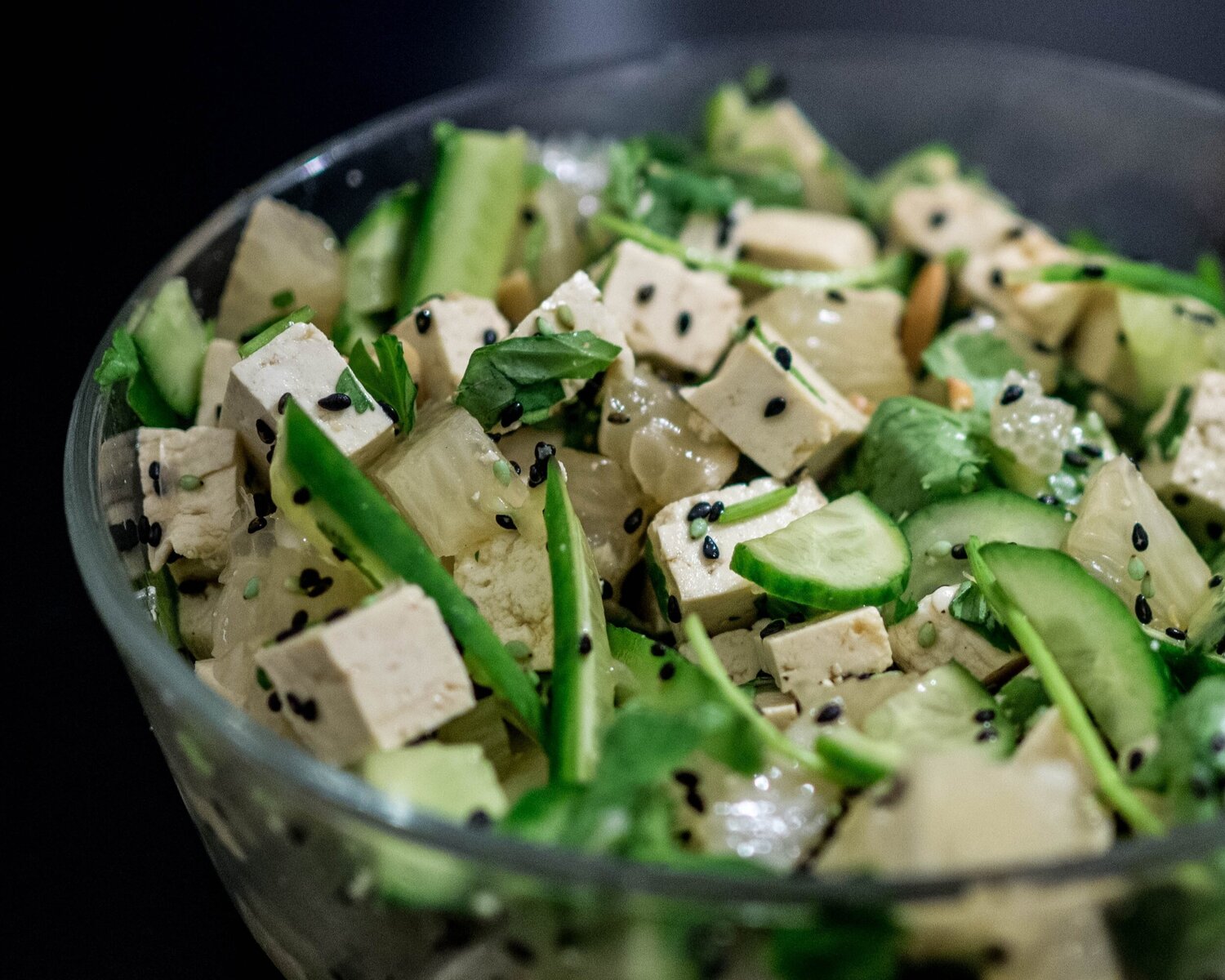
Remember that eating a plant-based diet does not have to mean an all-or-nothing mentality. Just get started by adding a few more vegetables to your meals. Instead of vegetables taking up only a quarter of your plate, strive for half or three-quarters. Whether you choose to eat animal products once a day or once a week is up to you, but choosing to bring more plants into your diet will always support your wellness in midlife and beyond.
Looking for more expert tips? Download Midday from the App Store, the only menopause app you’ll ever need.
Caitlin Beale, MS, RDN has a master’s of science in nutrition from California Polytechnic. She is a holistic Registered Dietitian Nutritionist (RDN) and has completed advanced training in integrative and functional nutrition. She specializes in gut health (IBS, celiac, SIBO, dysbiosis, leaky gut), food sensitivities, autoimmune conditions, and women’s health. Caitlin can be found at Caitlin Beale Wellness.
Sign up for more unique women’s health content
By submitting this form, you agree to the Lisa Health Privacy Policy and Terms of Use
